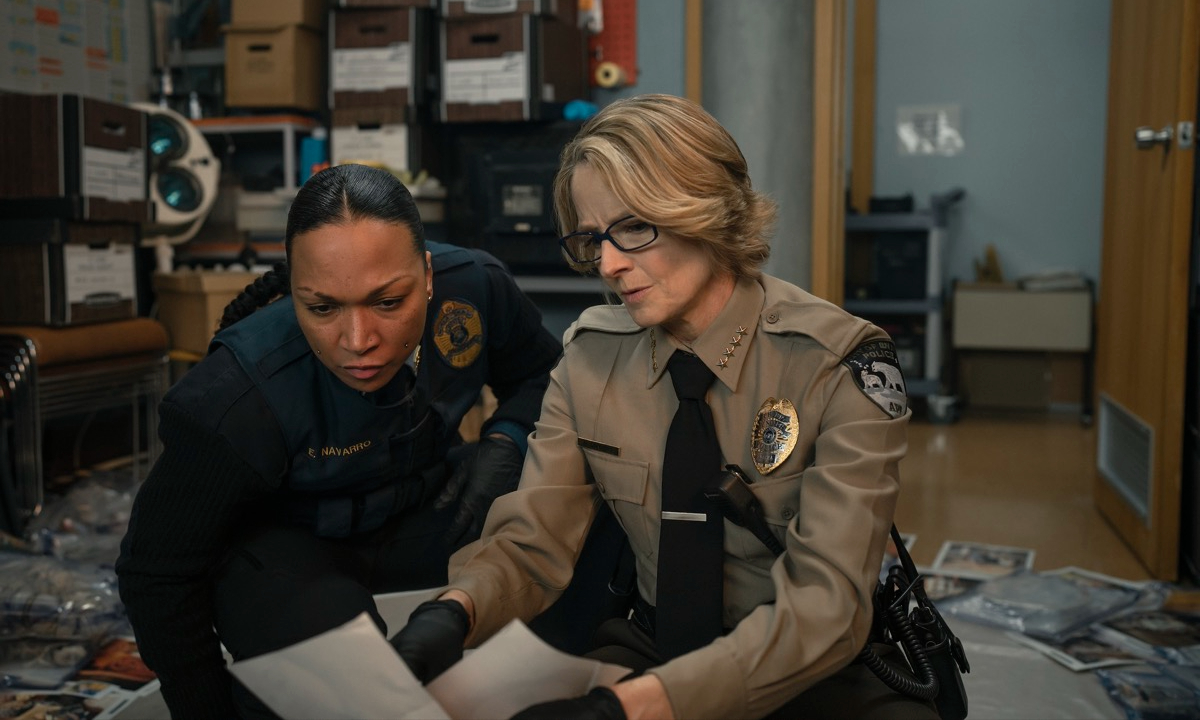With Three Episodes Left, ‘True Detective: Night Country’ Still Has More Questions Than Answers

Near the end of episode 3, True Detective: Night Country seems to fold another layer into its chilling mystery: What really happened with the Wheeler case?
In “Part 3,” Danvers (Jodie Foster) has Navarro (Kali Reis) transferred back to Ennis so they can put their heads together and figure out what happened to the men at the Tsalal Research Station and how that gruesome corpsicle is related to the murder of Annie K. This week, we learn a little more about Annie’s spiral tattoo and her relationship with Raymond Clark, one of the researchers from Tsalal. According to Annie’s friend Susan, a local hairstylist and seemingly the only person who knew about Annie and Raymond’s relationship, Annie was plagued by distressing dreams that only stopped when she got the spiral tattoo. After Annie died, Raymond got the same tattoo on his chest.
Right now, Danvers thinks the most important question to ask is why Annie and Raymond kept their relationship secret. Night Country is riding an interesting line between reality and the supernatural, not unlike the first season of True Detective. But it seems likely that Annie, an activist concerned with how the local mining industry is affecting the environment, wouldn’t want anyone to know she’s taken up with a researcher, whose interests may be in conflict with those of her peers.
We also get a really great flashback in the opening scene to the night when Navarro was supposed to arrest Annie. When she arrives on the doorstep, we hear a woman screaming for help, only to discover that Annie, a midwife, is assisting another Inupiaq woman with a home waterbirth. Unlike many depictions of childbirth in film and television as of late, this one has a happy ending: mother and baby are fine, and Navarro decides not to arrest Annie.
With Navarro back in Ennis, Officer Peter Prior—son of fellow cop Hank, whose personality continues to expose itself as exceptionally shitty–prods Danvers about why she was sent off to the State Troopers in the first place. Night Country takes a beat to remind us that, even though we’re ultimately on their side, our protagonists are not necessarily reliable. Danvers explains that the department kept receiving calls about a young woman who was being abused by her partner, William Wheeler, a man with a history of sexual abuse and assault (and who shares a name with the villain in The Changeling). Every time Danvers and Navarro responded to a call, the woman declined to press charges against Wheeler, which made it difficult for the cops to do anything about it. (A narrative that’s unfortunately very familiar to many people who have experienced or witnessed abuse.) One day, Danvers and Navarro are responding to yet another call at the home, when they discover that Wheeler killed the woman before turning the gun on himself.
Only, we don’t see the moment when Wheeler takes his own life. Danvers tells us that’s what happened, but is it? She adds that Navarro blamed her for not doing enough to prevent the murder, which led to Navarro’s transfer. But is that also true? We’ll probably found out what really happened soon enough—the editing is so deliberate here—but I wouldn’t be surprised if Navarro and/or Danvers popped off and shot Wheeler themselves. And maybe Danvers forced Navarro’s transfer to better hide the truth, which might be too generous a read on Danvers.
At this point in season 4, you might be surprised to learn that there are only three episodes left of True Detective: Night Country. Unlike previous installments, which clocked in at eight episodes each, Night Country is a little shorter. There are only six episodes in Issa López’s series, and while I could easily spend a full eight hours with these characters in this dark corner of the country, the story feels a little tighter and the time spent a little more intentional. Not a bad message to send to other showrunners.
True Detective: Night Country returns Sunday, February 4 with “Part 4.”
(featured image: HBO)
Have a tip we should know? [email protected]
